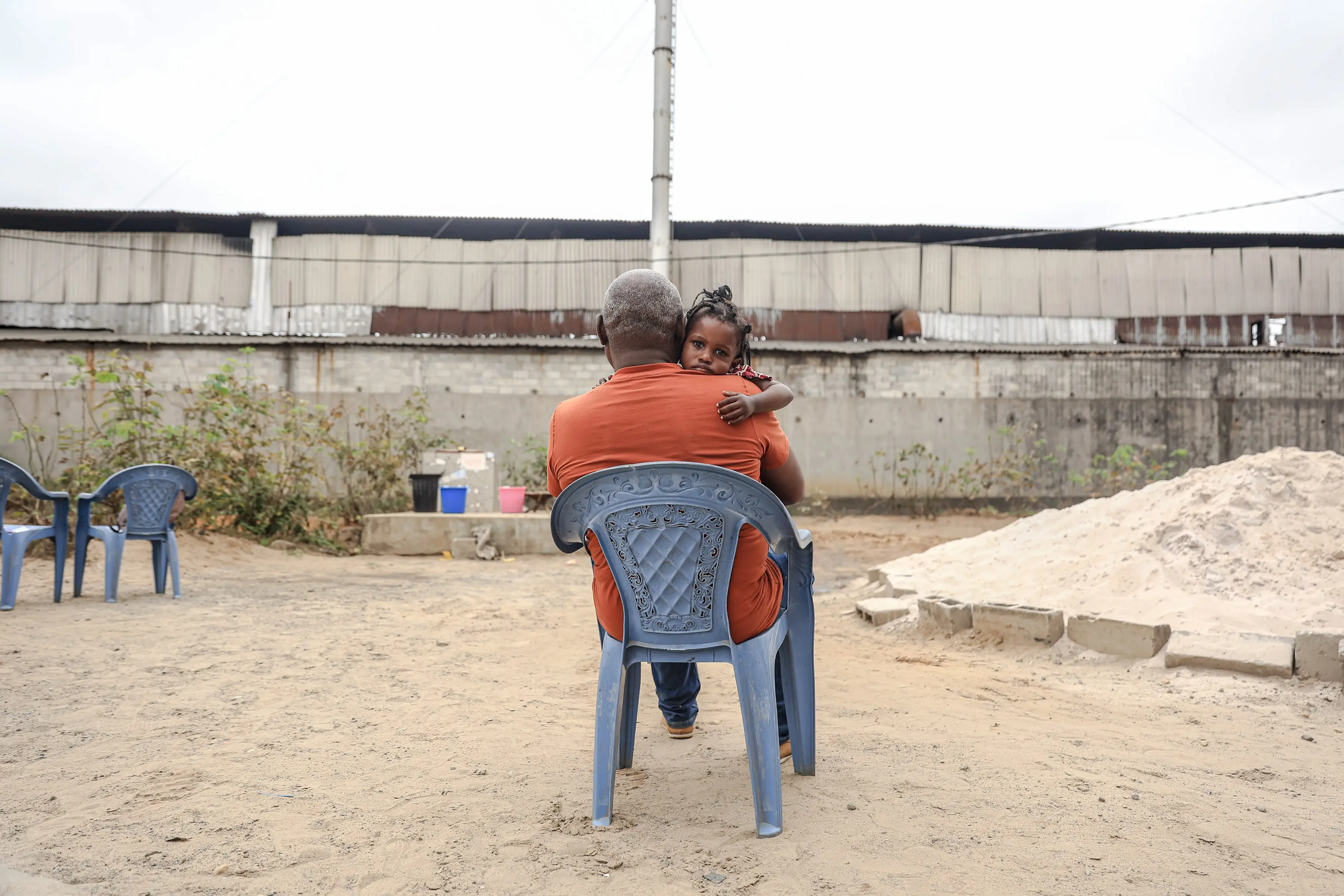Families near battery recycling plants face “dangerous" levels of lead in their blood and in soil, testing shows.
This story is a co-publication with The Examination, a new nonprofit newsroom specializing in global public health reporting. Sign up to get the Examination’s investigations in your inbox. This story is also available in French.
At noon, dusk, and in the dead of night, Cyrille Traoré Ndembi grabs his phone and films his nearest neighbor.
The battery recycling factory roars, rattling Ndembi’s bed. Its chimneys belch smoke into the air, sending bitter odors through the windows of the family’s concrete home. Ndembi’s front garden, where his children play, is sprinkled with a black dust laced with lead — one of the most dangerous metals on the planet.
Ndembi calls one chimney “the tower of death.”
Since moving to Vindoulou, a sandy grid of shacks and homes off the main highway in the Republic of Congo, four years ago, Ndembi’s wife and daughters have suffered from pneumonia, bronchitis, and persistent coughs, medical records show.
“With lead, they say it’s a strong, slow poison,” said Ndembi, 59, who is fighting alongside his neighbors to have the factory moved or closed. “It kills little by little.”
The owner, Metssa Trading, came to Africa from India more than two decades ago under the name Metafrique, seizing upon cheap material, labor and some of the weakest social and environmental protections in the world.
The company is now one of Central Africa’s most prominent recyclers of used automotive batteries; boxes of plastic, chemicals, and metal that — when chopped to pieces and melted inside 2,000-degree Fahrenheit ovens — produce the lead essential to most cars on the road today.
Experts call battery recycling the most polluting industry in the world. At its worst, industry emissions — smoke, dust, chemicals, water runoff — contaminate the environment for generations and the body for a lifetime. The market in Africa is expected to grow to more than $6 billion within this decade.
Yet while India introduced its first lead battery rules requiring recycling companies to adopt safe practices in its own country more than 20 years ago, the Republic of Congo, like other countries in Africa, hasn’t done the same.
Now, officials in New Delhi are celebrating the charge of Indian operations into Africa, which include battery recycling facilities in at least eight countries. India recently dispatched one of its ambassadors in West Africa to inaugurate a plant that had been stockpiling lead batteries. Indian investments in Africa have grown by more than $20 billion in four years, officials say, and government funding for projects across the continent are on the rise. “The sky is the limit,” Prime Minister Narendra Modi said in August.
This support comes amid growing evidence that Indian lead recycling companies are among the top polluters on the continent and are poisoning nearby communities, an investigation by The Examination, The Museba Project in Cameroon, and Ghana Business News in Ghana has found.
One major Indian recycler was determined by scientists to have contaminated soil not far from schools and churches in West Africa by thousands of times the level that would require cleanup in the United States. Another company, named for an elephant-headed Hindu god, was briefly closed by authorities in Senegal after health violations. Residents in one Kenyan community have tried for years in local court to sue an Indian-owned company, alleging the factory caused sickness and death.
Metssa Trading, too, has come under fire. The Republic of Congo’s environment minister suspended operations here after the factory failed to submit an audit. In neighboring Cameroon, where the owner of Metssa Trading founded another battery recycling company, environment officials rated the plant zero out of 100 in terms of efforts to protect human health.
“Indian companies came to take advantage of our loose monitoring regime,” said John Pwamang, the former acting executive director of the Environmental Protection Agency of Ghana, where 3 of the 6 major battery recycling plants are Indian-operated. “They should invest in modern, cleaner technologies instead of trying to get lead cheaply and contaminating the environment.”
From Ghana to Cameroon, interviews and documents show, government officials repeatedly sided with companies and not the communities that complained of sickness. Officials have refused to share with the public everything from basic information about the results of inspections and cleanups to answers about why they allowed new homes to be built within meters of a factory, despite laws designed to protect human health. Authorities have witnessed unsafe practices, but declined to intervene, the news organizations found.
Corporations from Spain, Ireland, and the United States fuel the toxic ecosystem, buying tons of the dangerously produced goods, which dock in ports from Antwerp to Baltimore, records show.
To gauge the risk of Metssa’s operations, The Examination commissioned independent testing in the Republic of Congo and Cameroon.


